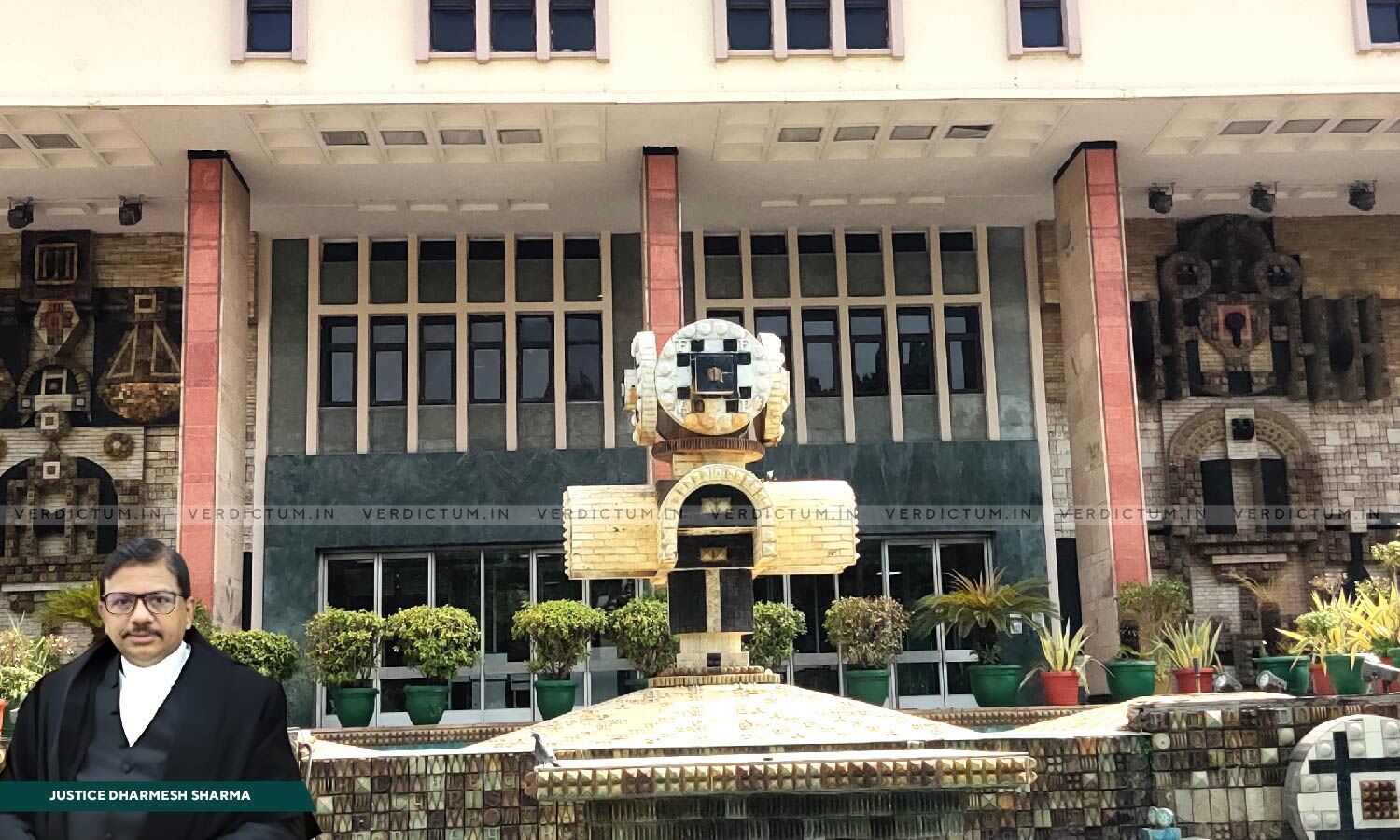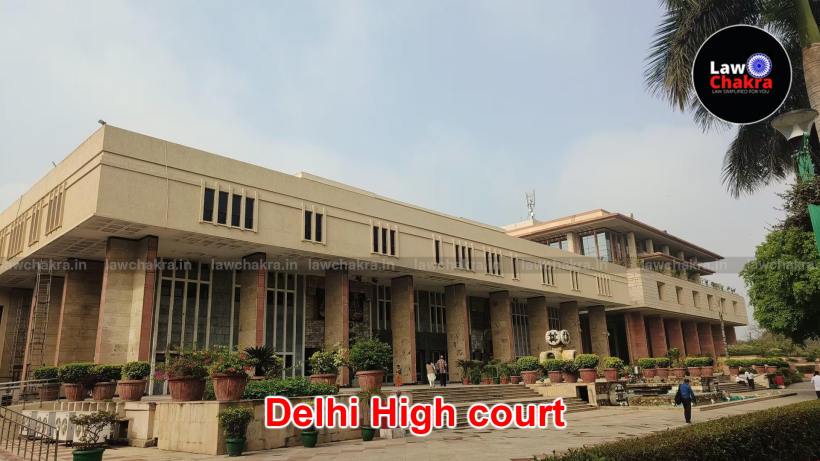Absence Of Journey Ticket On Deceased Person After Fatal Accident Cannot, By Itself, Negate Legitimacy Of Claim

The Delhi High Court has held that the absence of the journey ticket on the deceased person after the fatal incident cannot, by itself, negate the legitimacy of the claim.
The Court was considering an Appeal under Section 23 of the Railway Claims Tribunal Act, 1987 read with Section 151 of the Code of Civil Procedure, 1908 to set aside/quash the impugned order passed by the Railway Claims Tribunal whereby their claim for statutory compensation on account of death of their son was dismissed.
The single bench of Justice Dharmesh Sharma observed, “We may safely assume that the deceased did not board the train that arrived prior to midnight as it might be overcrowded and he did not feel safe to travel on that train along with his sister and her child. The prolonged wait is indicative of a legitimate and deliberate intention to travel, rather than any mala fide or surreptitious conduct. It is also relevant to observe that the deceased and his family members hailed from an economically weaker section of the society. In such circumstances, the absence of the journey ticket on the deceased’s person after the fatal incident cannot, by itself, negate the legitimacy of the claim, especially when credible evidence exists of ticket purchase prior to the journey.”
The Appellant was represented by Advocate Vrinda Kapoor while the Respondent was represented by CGSC Balendu Shekhar.
Facts of the Case
It was the case of the Appellants who were claimants in the original suit that their deceased son was travelling along with his sister and nephew from Mahoba to Hazrat Nizamuddin on October 3rd, 2017 in Jabalpur- Nizamuddin Mahakaushal Express Train with valid journey tickets and when the train reached the Bhandai Railway Station, near Agra, the deceased accidently fell down from the train and received grievous injuries all over his body.
He succumbed to the injuries and in the aftermath of the incident, the sister of the deceased handed over her journey tickets to the police at the time of escorting the injured to the hospital and one after the deceased had expired in the Hospital. There were two different copies of panchnama submitted, one by the Railways along with DRM Report which did not mention any railways journey ticket being found and one filed by the Appellants which mentioned three railways journey tickets being found. RCT also delved into the validity of the three railway journey tickets as it discovered that the deceased and his sister and nephew did not board the immediate first train scheduled for the journey but they board the next train.
Consequently, the RCT decided issue no. 1 against the Appellants and decided issue no. 2 in favour of Appellants and held the incident to be an ‘untoward incident’. The Appeal was thus filed assailing the fact that the issue no. 1 was decided against the Appellant on the grounds that the RCT failed to appreciate the evidence on record and erroneously concluded that the deceased was not a bonafide passenger at the time of incident.
Counsel for the Appellants urged that the RCT gave a narrow and literal interpretation to a welfare legislation, which is contrary to its intent that the welfare statutes are to be interpreted liberally to fulfill the objective of providing relief to the beneficiaries. They submitted that it is an admitted position that the deceased was travelling on a valid ticket purchased from the railway booking window. Furthermore, he was travelling with his family, which is a mitigating factor and supports the presumption that he was a bonafide passenger.
The Counsel submitted that the RCT erred in interpreting Section 124A of the Railways Act, particularly with respect to the explanation clause defining a “passenger” as it was argued that the the provision explicitly includes a person holding a valid ticket “on any date,” and hence, the RCT’s reasoning that the ticket was invalid due to a date mismatch is untenable and contrary to the statute.
Counsel for the Respondent on the other hand averred that since the late night train that the deceased and his family boarded departed after midnight, the tickets had expired and they were no longer valid for travel, thereby rendering the deceased a non-bona fide passenger. He also argue that the absence of statements of the family member from the record casts further doubts on the credibility of the claim, and raises questions regarding the authenticity of the tickets and the claimed circumstances of travel.
Reasoning By Court
The Court at the outset set aside the findings of the RCT on both the issues as absolutely unconscionable and perverse.
As far as the issue as to whether the deceased was a bonafide passenger within the meaning of Section 2(29) of the Act was concerned, the Court stated that it is an admitted fact that the railway tickets were purchased for performing journey on any given day.
it thus rejected another reasoning of the RCT that the tickets were invalid and observed, “Once a railway ticket/journey ticket is issued for performing the journey on any train, and it cannot be rule out that the train ticket may be issued just before mid-night and the journey is performed immediately afterwards as and when the train arrives. There is no caution, warning or stipulation in the railway/journey ticket that the journey should be performed on the date indicated in the ticket upto 00:00 hours in the mid-night of the same day.”
The Court further noted that the fact that the deceased was travelling in the company of his sister and nephew, and that they remained at the railway platform for approximately four and a half hours before boarding the train alone lends credence to the Appellants’ contention that there existed bonafide reasons for waiting for the subsequent train rather than boarding the earlier one.
“We may safely assume that the deceased did not board the train that arrived prior to midnight as it might be overcrowded and he did not feel safe to travel on that train along with his sister and her child. The prolonged wait is indicative of a legitimate and deliberate intention to travel, rather than any mala fide or surreptitious conduct. It is also relevant to observe that the deceased and his family members hailed from an economically weaker section of the society. In such circumstances, the absence of the journey ticket on the deceased’s person after the fatal incident cannot, by itself, negate the legitimacy of the claim, especially when credible evidence exists of ticket purchase prior to the journey,” the Court observed.
It thus concluded that the deceased was, in fact, a bonafide passenger as per section 2 (29) of the Act.
“In the absence of any explicit stipulation on the face of the ticket or any statutory prescription to the contrary, it cannot be presumed that the validity of the journey ticket expired at midnight. Acceptance of such an interpretation would result in grave prejudice to the passengers who undertake late-night travel. This clearly brings the case within the four corners of being an ‘untoward incident’. At the cost of the repetition, the respondent/railway cannot absolve themselves of their liability in terms of Section 124A of the Act,” the Court further observed.
The Appeal was accordingly allowed.
Cause Title: Sh. Kamtu Anuragi & And. vs. The Union of India
Appearances:
Appellant- Advocate Vrinda Kapoor, Advocate Sarvam Ritham Khare, Advocate Vishal Vaid
Respondent– CGSC Balendu Shekhar, Advocate Raj Kumar Maurya, Advocate Krishna Chaitanya




